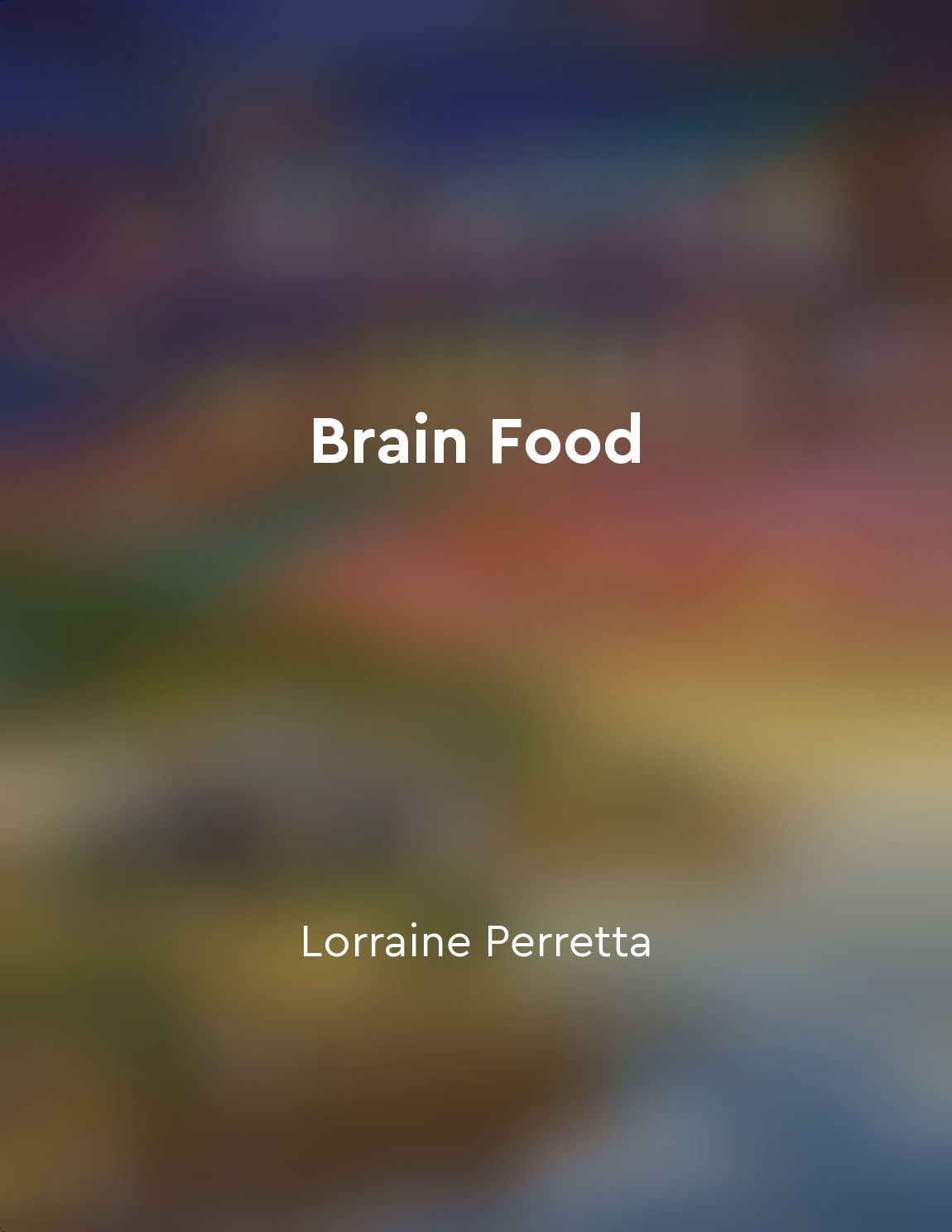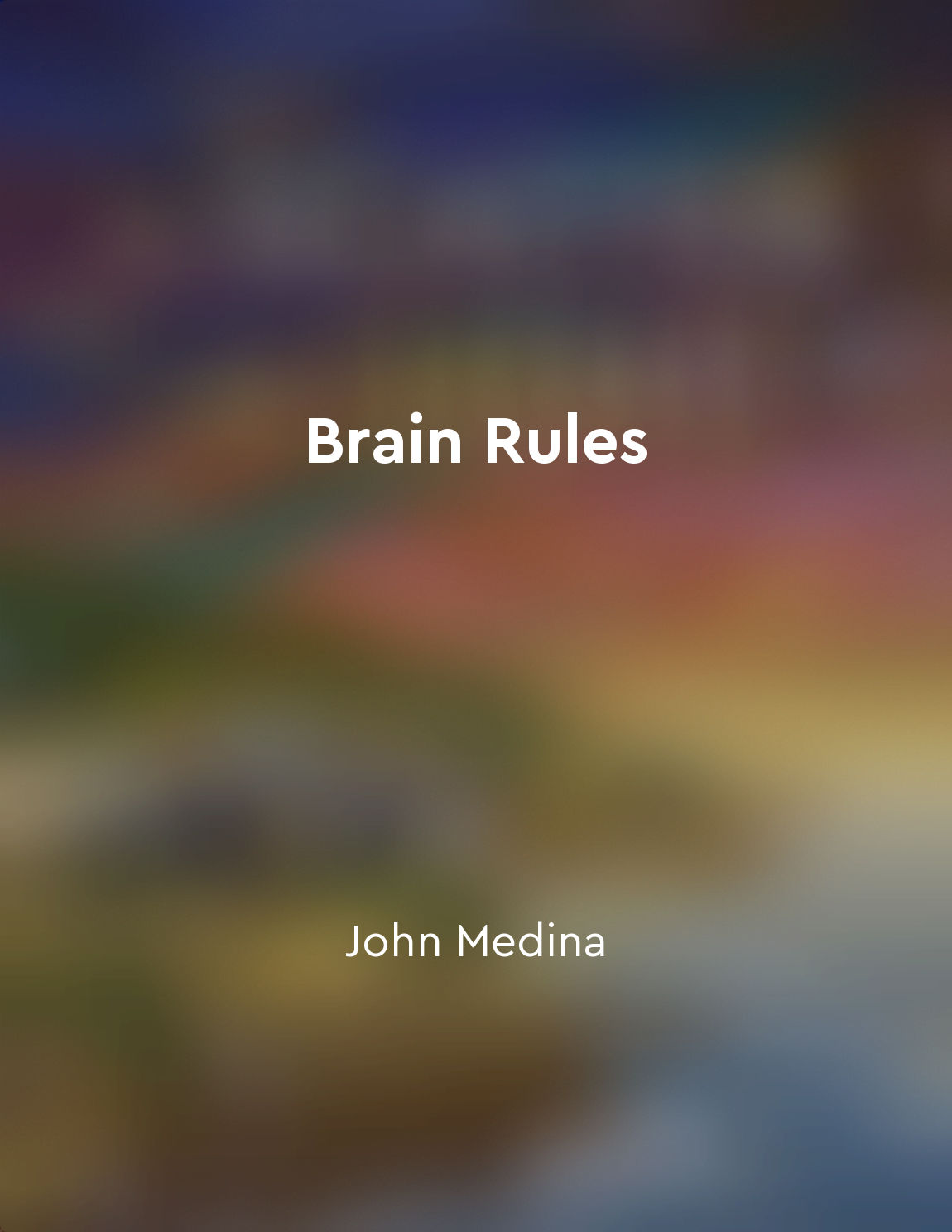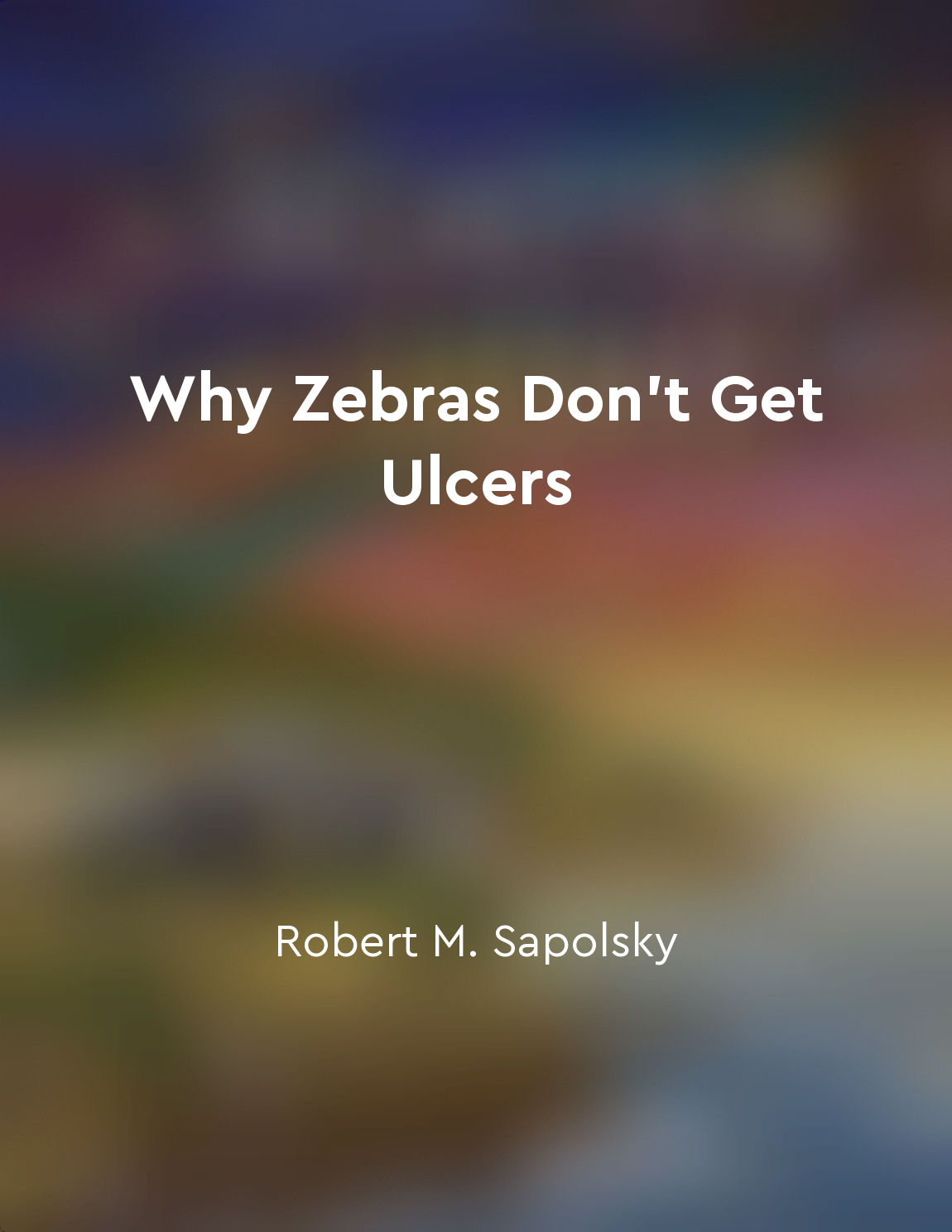Audio available in app
Stress can accelerate aging processes from "summary" of Why Zebras Don't Get Ulcers by Robert M. Sapolsky
Stress is a remarkable phenomenon that can wreak havoc on our bodies in a myriad of ways. When we encounter a stressful situation, our bodies respond by releasing a flood of stress hormones like adrenaline and cortisol. These hormones are incredibly useful in the short term, helping us to fight or flee from immediate danger. However, when stress becomes chronic, these hormones can start to cause serious damage. One of the most insidious effects of chronic stress is its ability to accelerate the aging process. Our bodies are equipped with a remarkable system known as the hypothalamic-pituitary-adrenal axis, which helps to regulate our response to stress. However, when this system is constantly activated due to chronic stress, it can start to wear down our cells and tissues, leading to premature aging. At the cellular level, stress can cause a process known as oxidative damage, where free radicals wreak havoc on our DNA, proteins, and other important molecules. This can lead to a wide range of age-related diseases, such as heart disease, diabetes, and neurodegenerative disorders. Additionally, chronic stress can impair the function of our immune system, making us more vulnerable to infections and other health problems. Furthermore, stress can also affect the length of our telomeres, which are protective caps at the end of our chromosomes. Shortened telomeres have been linked to a variety of age-related conditions, including cancer and cardiovascular disease. By accelerating the shortening of telomeres, chronic stress can speed up the aging process and increase our risk of developing these diseases.- The impact of stress on our bodies goes far beyond just making us feel anxious or overwhelmed. Chronic stress can have profound effects on our cells and tissues, accelerating the aging process and increasing our risk of developing age-related diseases. It is crucial to find healthy ways to manage stress and protect our bodies from the damaging effects of chronic stress.
Similar Posts

Caffeine and green tea offer cognitive benefits
Caffeine is a well-known stimulant that can give you a much-needed energy boost, but did you know that it can also improve your...
Indulging in moderation is okay, as long as you get back on track
Enjoying a treat every now and then is not a crime. In fact, it can actually help you stick to your healthy eating plan in the ...
Trauma can impact relationships and social interactions
Trauma has a way of seeping into every aspect of a person's life, including their relationships and social interactions. When s...

Immobility is brain poison
When you sit or lie still for extended periods, your brain is not happy. Brains need to move. They need to be engaged in physic...
Omega3 fatty acids benefit brain function
Omega-3 fatty acids, found in foods like fish, flaxseeds, and walnuts, are essential for brain health. These healthy fats play ...
Personalized approaches to weight loss are more effective
The idea that personalized approaches to weight loss are more effective is a fundamental principle. Every person is unique, wit...

Super agers prioritize mental and emotional wellbeing
Super agers are individuals who have successfully defied the odds of aging and have managed to maintain high levels of physical...

Social connections are important for mental and emotional wellbeing
As social creatures, we humans thrive on connections with others. Our mental and emotional wellbeing is closely tied to the qua...
Selfawareness is the foundation of emotional intelligence
Self-awareness is the cornerstone of emotional intelligence. It is the ability to recognize and understand our own emotions, th...
The relaxation response can be triggered through various methods
Various techniques can elicit the relaxation response, allowing individuals to counter the effects of stress and promote overal...


